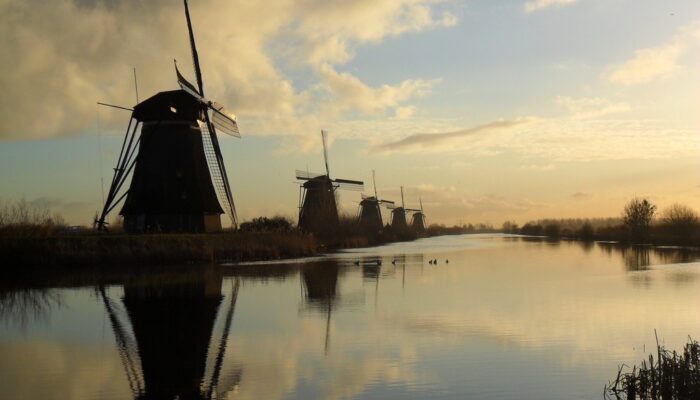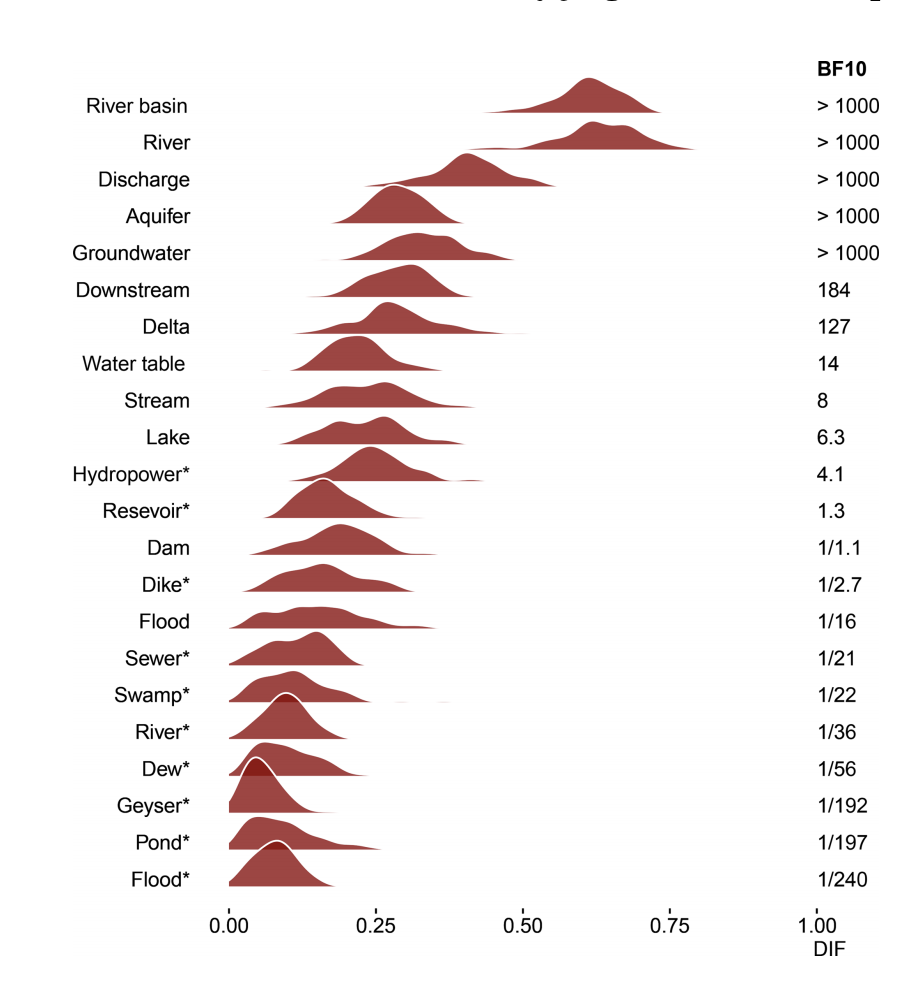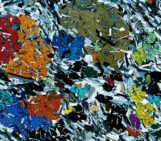
When hydrologists and people of the general public use simple water-related words, are they actually saying the same thing? While many don’t consider words like flood, river and groundwater to be very technical terms, also known as jargon, water scientists and the general public can actually have pretty different definitions. This is what a team of researchers have discovered in recent study, and their results were published in EGU’s open access journal Hydrology and Earth System Sciences. In this post, Rolf Hut, an assistant professor at Delft University of Technology in the Netherlands and co-author of the study, blogs about his team’s findings.
On the television a scientist is interviewed, in a room with a massive collection of books:
“Due to climate change, the once in two years flood now reaches up to…”
“Flood?” interrupts my dad “We haven’t had a flood in fifteen years; how can they talk about a once in two years flood?”
The return period of floods is an often used example to illustrate how statistically illiterate ‘the general public’ is supposed to be. But maybe we shouldn’t focus on the phrase ‘once in two years’, but rather on the term ‘flood’. Because: does my dad know what that scientist, a colleague of mine, means when she says “flood”?
In water-science the words that experts use are the same words that people use in daily life. Words like ‘flood’, ‘dam’ or ‘river’. Because we have been using these words for our entire lives, we may not stop and think that, because of our training as water scientists, we may have a different definition than what people outside our field may have. When together with experts on science communication, I was writing a review paper about geoscience on television[1] when we got into the discussion “what is jargon?”. We quickly found out that within geoscience this is an open question.
Together with a team of Netherlands-based scientists, including part-time journalist and scientist Gemma Venhuizen and professor of science communication Ionica Smeets and assistant professor on soils Cathelijne Stoof and professor of statistics Casper Albers we decided to look for an answer to this question. We conducted a survey where we asked people what they thought words like ‘flood’ meant. People could pick from different definitions. Those definitions were not wrong per se, just different. One might be from Wikipedia and another from a policy document from EU officials. We did not want to test if people were correct, but rather if there was a difference in meaning attached to words between water scientists and lay people. For completeness, we also added picture questions where people had to pick the picture that best matched a certain word.
The results are in. We recently published our findings in the EGU journal Hydrology and Earth System Sciences[2] and will present them at the EGU General Assembly in April 2019 in Vienna. As it turns out: words like ‘groundwater’, ‘discharge’ and even ‘river’ have a large difference between the meaning lay-people have compared to water scientists. For the pictures however, people tend to agree more. The figure below shows the misfit distribution between lay people and water scientists: the bigger the misfit, the more people have different definitions. The numbers on the right are the Bayes factor: bigger than 10 indicates strong evidence that differences between lay people and water scientists are more likely than similarities. The words with an asterisk are the picture questions, showing that when communicating using pictures people are more likely to share the same definition.

Graph showing the posterior distribution of the misfit between laypeople and experts by using a Bayes factor (BF) for every term used in the survey. Pictorial questions are marked with an asterisk. A value of the BF <1∕10 is strong evidence towards H0: it is more likely that laypeople answer questions the same as experts than differently. A value of the BF >10 is strong evidence towards H1: differences are more likely than similarities. In addition to a Bayes factor for the significance of the difference, we also calculated the misfit: the strength of the difference. The misfit was calculated by a DIF score (differential item functioning), in which DIF =0 means perfect match, and DIF =1 means maximum difference. (Figure from https://doi.org/10.5194/hess-23-393-2019)
Maybe that scientist talking about floods on the television should have been filmed at a flood site, not in front of a pile of books.
Finally, the term ‘flood’ proved to be one of the words that we do tend to agree on, so maybe dad should take that class in basic statistics afterall…
By dr. ir. Rolf Hut, researcher at Delft University of Technology, the Netherlands
[This article is cross-posted on Rolf Hut’s personal site]
References
[1] Hut, R., Land-Zandstra, A. M., Smeets, I., and Stoof, C. R.: Geoscience on television: a review of science communication literature in the context of geosciences, Hydrol. Earth Syst. Sci., 20, 2507-2518, https://doi.org/10.5194/hess-20-2507-2016, 2016.
[2] Venhuizen, G. J., Hut, R., Albers, C., Stoof, C. R., and Smeets, I.: Flooded by jargon: how the interpretation of water-related terms differs between hydrology experts and the general audience, Hydrol. Earth Syst. Sci., 23, 393-403, https://doi.org/10.5194/hess-23-393-2019, 2019.



